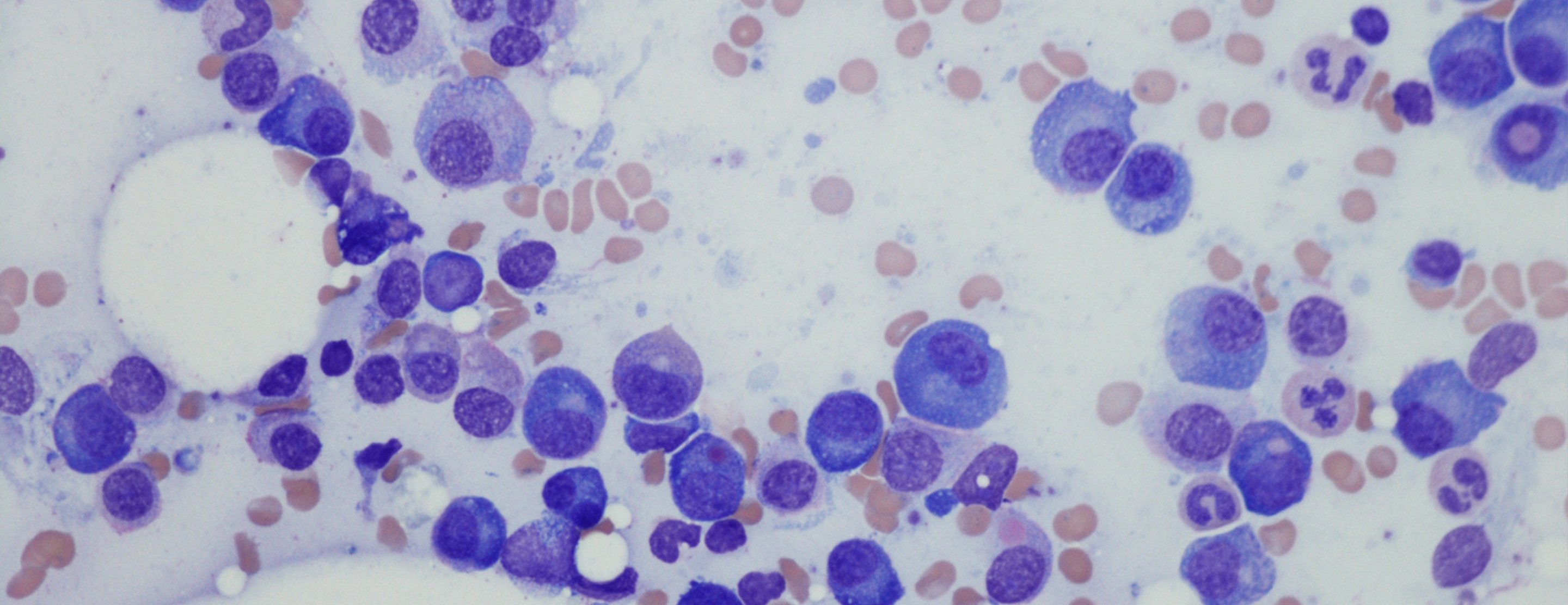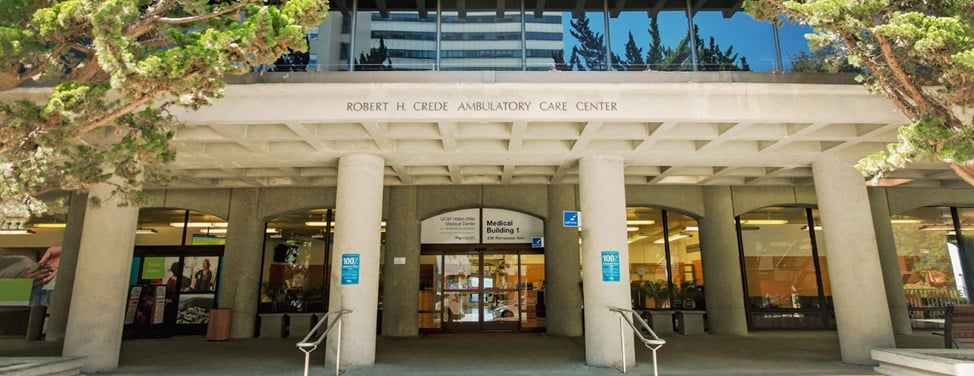
Matched Unrelated Donor Transplantation
General Information
Bone marrow transplantation can be performed using one's own bone marrow, called an autologous bone marrow transplant, or by using another person's bone marrow, called an allogeneic bone marrow transplant. The type of bone marrow transplant used in any individual situation is determined through an in-depth evaluation and is beyond the scope of this text. If you have questions concerning the type of transplant recommended in your particular case, you may consult a BMT doctor at UCSF for a full evaluation.
An allogeneic bone marrow transplant offers potentially curative therapy to patients with a variety of cancers including:
- Acute and chronic leukemia
- Non-Hodgkin's or Hodgkin's lymphoma
- Aplastic anemia
- Multiple myeloma
- Myelodysplasia
- Several other malignant and non-malignant disorders
An essential component of allogeneic transplantation is to identify a human leukocyte antigens (HLA)-matched bone marrow donor. Ideally, a brother, sister or possibly another family member can serve as the bone marrow donor. However, many patients do not have a suitable family member to serve as a donor.
For those patients without a family donor, the National Marrow Donor Program (NMPD) provides a service to locate HLA-matched unrelated donors (MUD transplantation). Currently, there are approximately five million volunteer bone marrow donors registered with the NMDP. An additional 40,000 new donors are added to the registry each month and the NMDP facilitates over 1,000 MUD transplants each year.
If you or a family member has questions regarding matched unrelated donor transplantation you may contact the UCSF Blood and Marrow Program, your local NMDP-approved transplant center or the National Marrow Donor Program. If you or a family member would like to become a bone marrow donor, visit www.marrow.org or call 1-800-MARROW-2 for more information.
Donor Search
The Bone Marrow Transplantation Program at UCSF is certified by the NMDP to facilitate unrelated donor searches and transplants. The process begins with a simple blood test designed to evaluate the recipient's HLA genes. This blood test, called HLA typing, identifies antigens or proteins located on the surface of their cells that are important for immune function.
Once the patient's HLA-type is known, a preliminary search can be performed. The preliminary search is a computerized search designed to identify potential bone marrow donors that have similar HLA antigens. A detailed report of the preliminary search is usually available within 24 hours. The preliminary search is free of charge and no donors are contacted during this phase of donor searching.
If the preliminary search is successful in identifying potential donors and the recipient and doctor decide an unrelated transplant is necessary, a formal search can be initiated. Only an NMDP-approved cancer center, like UCSF, can initiate a formal search. During this process, potential donors are contacted and blood samples are obtained to confirm HLA-typing and perform other screening tests. These additional blood tests are more specialized and are designed to determine which donor is the best possible match.
Once the best donor is found and selected, the donor visits an NMDP-approved collection center to learn more about the collection process. The donor will attend an information session and will have a complete physical examination with more blood tests. As long as the donor passes all the examinations, a date for transplantation can be determined.
An unrelated donor search is a complex and time-consuming process. On average, it takes between three and six months to complete the searching process. Therefore, it is imperative to begin the unrelated search process as soon as possible. You can consult a BMT doctor at UCSF to determine if and when an unrelated search should be initiated.
The HLA System
The main goal of the immune system is to protect the body against abnormal or foreign substances like bacteria, viruses or even cancer cells. The immune system must be able to distinguish between the body's own cells termed "self" and other substances termed "non-self." This is important so that the immune system doesn't fight its own normal cells, but rather specifically targets the abnormal cells or substances.
The HLA system provides the "self" signals necessary for proper immune function. The HLA genes encode antigens or proteins that rest on the surface of human cells. These proteins act like flags and allow the body's immune system to recognize the substances as self. Foreign substances, without these flags, are recognized as non-self and are subject to an immune attack. There are many different HLA antigens and everybody has their own unique set of cell-surface proteins (or flags).
When searching for a bone marrow donor, we attempt to match six specific HLA antigens between the donor and the patient — a six out of six match. The goal is to match the donor's and recipient's immune systems so that the flags on their cell surfaces appear similar. Therefore, when the new donor immune system develops in the recipient's body, the new immune system will recognize the recipient's cells as self. If the new immune system identifies the recipient's body or cells as abnormal (in other words, not-self), the new immune system will fight the recipient's body. This is called graft-versus-host disease, in which the donor's immune system fights the recipient's body.
The better the match, the lower the chance of graft-versus-host disease. However, even when the donor and the recipient are matched at all six HLA-antigens, graft-versus-host disease can still occur. Other genes are likely important for graft-versus-host disease and more research is needed to enhance our understanding.
HLA Typing
HLA typing requires a specialized laboratory equipped with experts in transplant biology and HLA gene analysis. The process identifies the HLA A, B, C and DR antigens present on the donor's and recipient's cells. Each person has two types of A, B, C and DR antigens, one inherited from his or her mother and the other from the father.
Specialized high-resolution molecular typing is now performed on all genes A, B, C and DR. This specific typing can sometimes take two to three weeks to complete. Once we have received donor samples at UCSF, we can perform this specialized typing. The goal is to locate the best possible match.
If you have any questions regarding HLA typing or results, contact your doctor or bone marrow transplant coordinator.
Bone Marrow Transplant Coordinator
The bone marrow transplant coordinator will supervise the HLA typing, the search process and the pre-transplant evaluation and testing of the donor and recipient. The bone marrow transplant coordinator will have the most up-to-date information regarding the HLA searching process. If there are any questions regarding unrelated transplantation or the marrow donation process you may contact your unrelated BMT coordinator at (415) 353-2220.
Dr. Thomas Martin supervises the unrelated searching process. He can be reached at (415) 353-2421.
UCSF Health medical specialists have reviewed this information. It is for educational purposes only and is not intended to replace the advice of your doctor or other health care provider. We encourage you to discuss any questions or concerns you may have with your provider.








